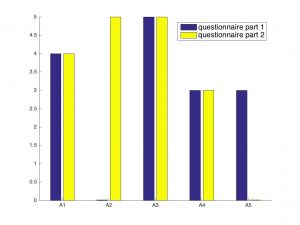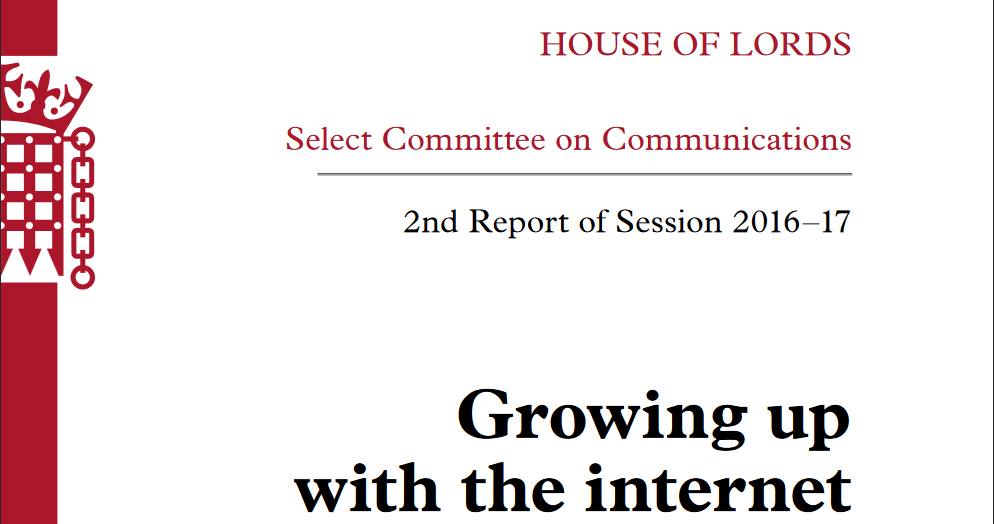
Many multi-user scenarios are characterised by a combinatorial nature, i.e., an algorithm can take meaningful decisions for the users only if all their requirements and preferences are considered at the same time to select a solution from a huge potential space of possible system decisions. Sharing economy application, where users aim to find peers to form teams with in order to accomplish a task, and situations in which a limited number of potentially different resources, e.g. hotel rooms, must be distributed to users who have preferences over them are examples of such scenarios.
Continue reading How hard is to be fair in multi-user combinatorial scenarios? →

On 21st March the House of Select Committee on Communications published a report called ‘Growing up with the internet’. The report is based on an enquiry conducted by the House of Lords into Children and the Internet. UnBias team member Professor Marina Jirotka served as a specialist advisor to the enquiry and team member Professor Derek McAuley gave verbal evidence to it, elaborating on the written evidence submitted by Perez, Koene and McAuley.
Continue reading “Growing up Digital” UnBias team members contribute to House of Lords report →
What are algorithms and how are they designed? Why are they used in commercial practice and what kinds of benefits can they bring? What are the potential harmful impacts of using algorithms and how can they be prevented?

On Wednesday 15th February 2017 some UnBias consortium members had the pleasure of attending an Algorithm Workshop hosted by the Law School, University of Strathclyde. During the workshop, we had the opportunity to consider, discuss and begin to address key issues and concerns surrounding the contemporary prevalence of algorithms. The workshop was also attended by students from the host University and an interdisciplinary group of experts from areas including Law, Computer Science and the Social Sciences. This mix of expertise made for a really great afternoon of talks and discussions surrounding the design, development and use of algorithms through various disciplinary perspectives.
Continue reading Algorithm Workshop, University of Strathclyde. February 2017 →
Emancipating Users Against Algorithmic Biases for a Trusted Digital Economy



